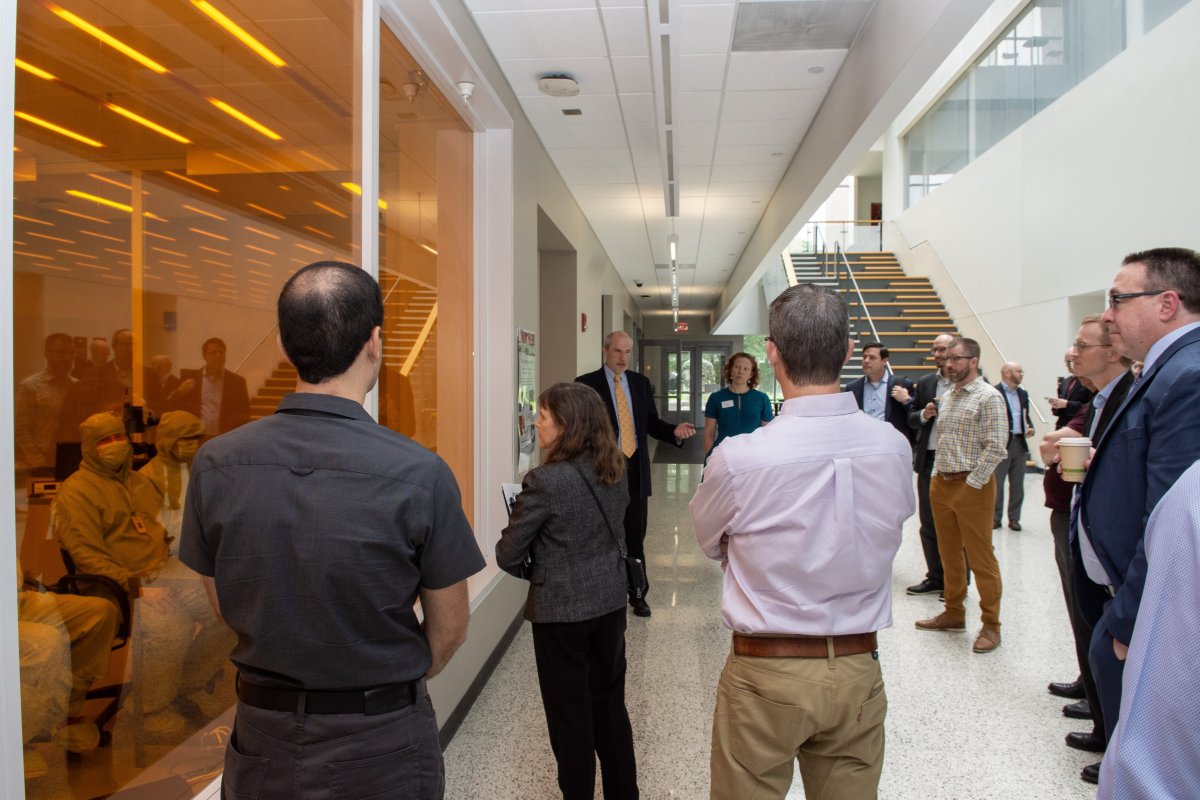Minnesota Nano Center plays key role in national security workforce program

Projects will include academic research undertakings with industry input and relevance
MINNEAPOLIS/ST. PAUL (07/08/2024) — The University of Minnesota recently hosted academic, business, and government leaders to launch the University’s participation in a new workforce development program sponsored by the Department of Defense. The program will focus on national security and includes a key role for the Minnesota Nano Center.
Scalable Asymmetric Lifecycle Engagement (SCALE) is a network of universities brought together to meet the semiconductor workforce needs of the defense sector. Under SCALE, the University of Minnesota will work to develop a talent pipeline that will encourage more domestic students to pursue advanced degrees and employment in national security related fields.
“Minnesota actually was a place where a lot of chip-related technologies were born, but over time they migrated to different parts of the world. I think we are now in this renaissance mode. We are giving rebirth to many of the technologies all the way from materials to manufacturing processes to packaging,” said Shashank Priya, University of Minnesota vice president for research and innovation and professor in the Department of Chemical Engineering and Materials Science.
The Minnesota Nano Center will play a key role in this initiative.
“Our SCALE work is going to be operated in part through the Minnesota Nano Center, so students are going to get a lot of hands-on experience with microfabrication,” said Steven Koester, a Russell J. Penrose Professor in Nanotechnology and Chief Semiconductor Officer at the University of Minnesota. Koester also is a professor in the Department of Electrical and Computer Engineering and director of the Minnesota Nano Center.
“The Minnesota Nano Center is a great resource for our faculty and students, and now for developing talent outside the University,” Koester added.
The Minnesota Nano Center, along with the Technological Leadership Institute, recently completed a new training program for 60 employees of Minnesota microelectronics companies, providing them with a comprehensive overview of how integrated circuits and other microdevices are made.
As part of SCALE, researchers at the University of Minnesota will investigate "radiation hardened" semiconductors, which have important applications in satellite communications and other defense-related applications. Koester said the University will work with staff at leading semiconductor manufacturer Polar Semiconductor to co-advise graduate students conducting research. In this way, the academic research projects will include industry input.
Other local universities participating in SCALE include Metro State University and University of St. Thomas. Minnesota's involvement is a reflection of the state’s strong semiconductor ecosystem and educational excellence. SCALE is led by Purdue University, and administered through the Naval Surface Warfare Center Crane Division, SCALE provides coursework, internships, and focused research projects for both graduate and undergraduate students aimed at targeted microelectronics specialty areas.
This article was adapted from a University of Minnesota’s Research and Innovation Office story.
